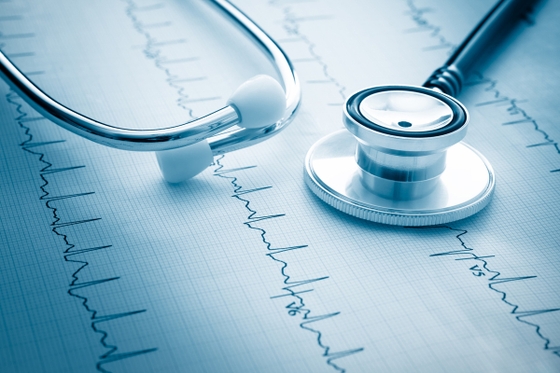
What is heart disease?
Heart disease is the broad term for conditions that affect the structure and function of the heart muscle.
Key takeaways
5 min read
- Heart disease is a group of conditions that includes coronary heart disease, arrhythmias, heart failure and valve disease.
- Heart disease is a major cause of health problems and death in Australia, but it’s often preventable.
- Many types of heart disease can be prevented or treated with healthy lifestyle choices, medications and / or surgery.
Heart disease is the broad term for conditions that affect the structure and function of the heart muscle. It includes:
- Coronary heart disease (CHD)
- Heart failure
- Valve disease
- Arrhythmias (rhythm disorders)
Heart disease can have many causes. It occurs earlier and more frequently in men than women, and within certain ethnic groups. You may be born with heart disease, or have an increased risk of developing it due to your genetics.
Impact of heart disease
While heart disease death rates have fallen in Australia in the last 10 years, it’s still the leading cause of death. Heart disease can also lead to chronic health problems that require ongoing or life-long care.
However, many incidences of heart disease are preventable. That’s because the risk factors related to many heart disease conditions are related to your lifestyle choices, such as what you eat, how much you exercise and whether or not you smoke.
How can you prevent heart disease?
In many cases, you can significantly reduce your risk of heart disease by improving your lifestyle choices. Here are a few things you can do to help reduce your risk:
- Eat well. See the Heart Foundation’s healthy eating tips, recipes and information to help protect your heart
- Exercise regularly. Learn more about how much exercise you need, how to build more activity into your day-to-day life and more
- Stop smoking. Find out more about smoking and your heart
- See your doctor regularly. This is particularly important if you have conditions such as high blood pressure, diabetes, or high cholesterol, which can increase your risk of heart disease.
If you’ve been diagnosed with heart disease, it can still be managed. With the right support, lifestyle changes and treatment, you can go on to live a full and active life.
Heart disease overview
Coronary heart disease
Around 2 per cent of adult Australians have reported having coronary heart disease at some point in their lives.
Coronary heart disease (CHD), also known as ischaemic heart disease or coronary artery disease occurs when fatty material (plaque) builds up in the arteries that supply blood to your heart. This fatty plaque gradually clogs your arteries, reducing the flow of blood.
CHD often develops over many years. However, many people don’t realise they have it until they have the two common types: angina or a heart attack.
Angina
Angina is when a temporary reduction in blood flow to your heart causes pain, pressure or tightness in the chest or other parts of your body.
Heart attack
Heart attacks happen when fatty plaque that’s been building up in walls of an artery bursts and your coronary artery becomes blocked. This is a medical emergency that requires urgent treatment to restore blood flow to your heart.
In 2022, approximately 430,000 people – approximately 1.7 per cent of the population – self-reported as having experienced a heart attack. On average, 19 Australians die of a heart attack every day.
If you or someone you know is experiencing the warning signs of a heart attack, stop, tell someone and follow the chest pain action plan. If symptoms continue for longer than 10 minutes of rest or medication, call Triple Zero (000) and ask for an ambulance. Every minute counts, as the longer the delay the more damage to your heart muscle.
Arrhythmias
Arrhythmias are abnormal heart rhythms caused by problems with your heart’s electrical system, which controls its pumping action. This causes your heartbeat to become too fast, too slow, or irregular.
- While symptoms depend on what type of arrhythmia you have, the most common ones include:
- Palpitations (feeling like your heart is racing, thumping or fluttering)
- Chest pain or discomfort
- Dizziness
- Shortness of breath
- Fatigue
- Feeling unwell
- Sweating
- Anxiety
- Fainting or near-fainting
You should see your doctor if you suddenly experience any of these symptoms unexpectedly, or if they start happening regularly.
Types of arrhythmias
The most common arrhythmia is atrial fibrillation. This starts in the upper chambers of your heart (the atria), and causes them to quiver or fibrillate instead of beating normally. Learn more about atrial fibrillation now.
Other arrhythmias include heart block, atrial flutter, supraventricular tachycardia and ventricular tachycardia.
Cardiac arrest
This is when an arrhythmia causes your heart to malfunction and stop beating.
A person having a cardiac arrest will quickly lose consciousness as their blood stops flowing to their brain and other vital organs. They will die within minutes without urgent treatment.
If you witness someone suddenly collapse and they’re not breathing, or breathing abnormally, then:
- Call Triple Zero (000) and ask for an ambulance
- Start CPR - push hard on the centre of the chest at a rate of 2 per second (it’s the same beat as Stayin’ Alive by the Bee Gees)
- Use a defibrillator as soon as you can.
You are the person’s best chance of survival.
Heart attack vs cardiac arrest
People often confuse the two, but they’re not the same thing.
Heart attack
- This a circulatory problem
- The heart will usually keep beating
- The person will usually be conscious and breathing, complaining of the warning signs
- Call Triple Zero (000) if symptoms persist for more than 10 minutes
Cardiac arrest
- This is an electrical problem
- The heart will stop beating
- The person will be unconscious and not breathing
- Call, Push, Shock Call Triple Zero (000) and start chest compression and find a defibrillator
Heart failure
This is when your heart muscle is damaged and does not pump properly. The heart may become bigger, weaker or stiffer and this can result in symptoms. Tiredness, reduced ability to do physical activity and shortness of breath are common symptoms. So is swelling in the feet, legs and abdomen, as well as trouble lying down flat.
Some potential causes of heart failure include heart attack, high blood pressure and heart valve problems.
Treatment for heart failure usually involves medications, as well as managing other health problems that can affect your heart.
Valve disease
Your heart has four valves that open and close to keep your blood flowing in the one direction. If these valves become damaged or diseased, they can stop opening and/or closing properly, leading to symptoms such as shortness of breath and chest pain.
You can be born with valve disease, or develop it as a complication of other heart conditions such as heart attack or heart failure.
It can also be caused by rheumatic heart disease, which is when your heart valves are damaged by your immune system’s response to bacterial infection, called acute rheumatic fever (ARF).
Heart disease FAQs
What’s the difference between heart disease and cardiovascular disease?
Cardiovascular disease is an umbrella term that includes heart disease, stroke and blood vessel disease. Heart disease is a category of cardiovascular disease and refers to a variety of conditions that affect the heart’s structure and function.
Can heart disease run in the family?
Yes. Having a family history of heart disease can increase your risk of developing. However, there are many things you can do to reduce your risk, and protect your heart from heart disease.
Learn more about family history and heart disease.
Can you cure heart disease?
While many cases of heart disease can be prevented, most can’t be cured. In many cases, you can manage heart disease and live well.
Some heart conditions, such as arrhythmias and valve disorders, can be responsive to treatment and not require further management. However, you still need to have regular check-ups to monitor your condition.
On the other hand, coronary artery disease and heart failure are chronic diseases that you’ll need to manage for the rest of your life.
References
- Statistics ABo. Causes of Death, Australia. Accessed 15th Feburary, 2024. https://www.abs.gov.au/statistics/health/causes-death/causes-death-australia/2022
- Arnett DK, Blumenthal RS, Albert MA, et al. 2019 ACC/AHA Guideline on the Primary Prevention of Cardiovascular Disease: A Report of the American College of Cardiology/American Heart Association Task Force on Clinical Practice Guidelines. Circulation. 2019;140(11):e596-e646. doi:doi:10.1161/CIR.0000000000000678
- Otto CM, Nishimura RA, Bonow RO, et al. 2020 ACC/AHA Guideline for the Management of Patients With Valvular Heart Disease: A Report of the American College of Cardiology/American Heart Association Joint Committee on Clinical Practice Guidelines. Circulation. 2021;143(5):e72-e227. doi:doi:10.1161/CIR.0000000000000923
- Heidenreich PA, Bozkurt B, Aguilar D, et al. 2022 AHA/ACC/HFSA Guideline for the Management of Heart Failure: A Report of the American College of Cardiology/American Heart Association Joint Committee on Clinical Practice Guidelines. Circulation. 2022;145(18):e895-e1032. doi:doi:10.1161/CIR.0000000000001063
You might also be interested in...

What is angina?
Experiencing chest pain? Learn about angina, its causes, symptoms, and treatments to manage chest pain and protect your heart with expert advice.
.jpg?width=560&height=auto&format=pjpg&auto=webp)
What is heart failure?
Heart failure is a condition where your heart isn’t pumping blood to the rest of your body as well as it should. If your heart is damaged or not pumping properly, it can become enlarged, weak or stiff.

What is a heart attack?
A heart attack is a medical emergency. Learn the key signs, causes, and treatment options to protect your heart and act quickly when every second counts.
Last updated28 July 2025
Last reviewed19 February 2024
